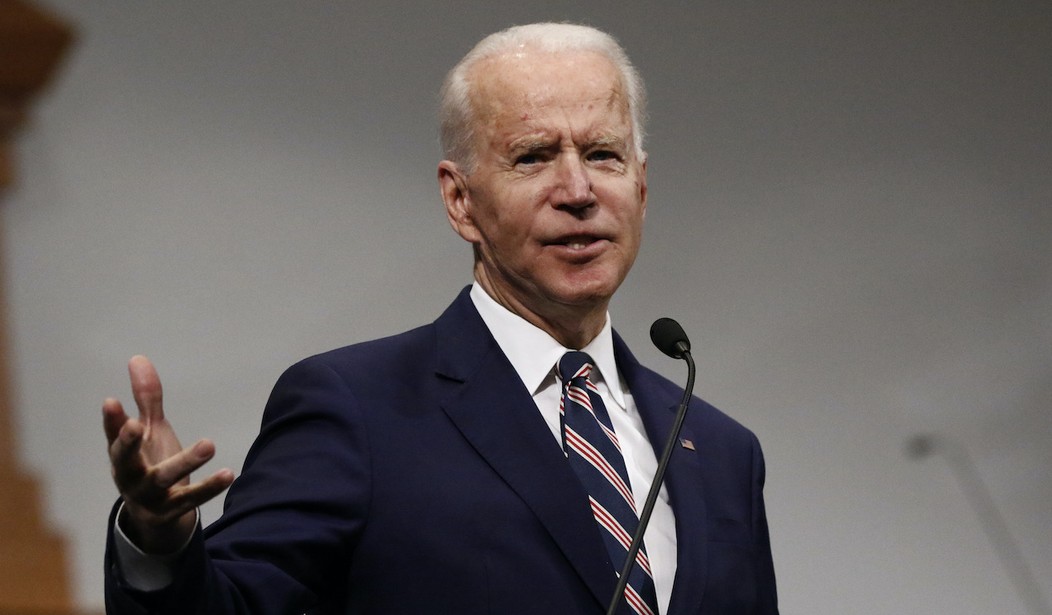Joe Biden was sworn into the United States Senate on Jan. 3, 1973. He remained in the Senate until Jan. 15, 2009 -- a span of 36 years. If history is any guide, that alone is a disqualifier in Biden's quest for the White House.
What does 36 years in the Senate say about a politician? It says he is a senator -- not a president.
So the first reason Biden will not become president is that no one who served 36 years in the Senate has ever become president. No one who served 30 years in the Senate has ever become president. No one who served 25 years in the Senate has ever become president. No one who served 20 years in the Senate has ever become president. No one who served 15 years in the Senate has ever become president.
It's not for lack of trying. Bob Dole, who was sworn into the Senate on Jan. 3, 1969, ran for president 27 years later, in 1996. He quit the Senate during the campaign to show his determination to become president. But his long years in the chamber, plus his age -- he was 73 at the time and the subject of endless suggestions that he was too old to be president -- were a deal-killer for voters.
Others tried, too. In 2008, John McCain ran for president after 21 years in the Senate. It didn't work. In 2004, John Kerry ran for president after 19 years in the Senate. That didn't work, either.
A long career in the Senate is simply not a foundation for a successful run for the White House. The most recent political figure to realize that was Barack Obama, who was sworn into the Senate in 2005 and two years later was running for the presidency -- and to get out of the Senate.
OK, put aside the Senate, Biden's supporters would say. What about his eight years as vice president? Certainly that could be the basis for a successful presidential run. But the second reason Biden will not become president is that the record of vice presidents on that score is not encouraging.
Recommended
Fourteen vice presidents have become president. Of those, eight became president upon the death of the president. Of that group, some were later elected to the White House, but they were running for the office as the sitting president.
Others, like George H.W. Bush, became president by succeeding the president they served. They won the presidency as the sitting vice president. When Bush did that, in 1988, it had not been done since 1836. It has not been done since.
In any event, that is not Biden's situation. He served eight years as vice president, but did not run to succeed President Obama. Now, he is running as a private citizen.
Only one president has gone from the vice presidency to private life and then to the presidency. Richard Nixon served as vice president in the 1950s, narrowly lost the 1960 presidential election, and then came back to win the presidency in 1968. That is Biden's hope -- that a vice president can leave office and then, after a period outside government, return to win the White House.
Perhaps. But Nixon, who spent less than three years in the Senate, became vice president a few days after turning 40, and was sworn in as president at 56 -- more than two decades younger than Biden, who will be 78 on Inauguration Day 2021.
Finally, the third reason Biden will not be president is the "14-Year Rule." The idea of former George W. Bush speechwriter John McConnell, and popularized by writer Jonathan Rauch, it basically says that politicians have a strict sell-by date. "No one gets elected president who needs longer than 14 years to get from his or her first gubernatorial or Senate victory to either the presidency or the vice presidency," Rauch wrote. That has been true for a century.
Biden didn't even get close. It took him 36 years to get from his first Senate victory to the vice presidency. If he wins the presidency now, it would be 47 years from that first Senate swearing-in until Inauguration Day.
Of course, it's possible the 14-Year Rule, the Too Long in the Senate Rule, and the How Vice Presidents Become President Rule might all be wrong in Biden's case. If so, he can frame this headline and hang it somewhere in the White House. But don't bet on it.
Byron York is chief political correspondent for The Washington Examiner.

























Join the conversation as a VIP Member